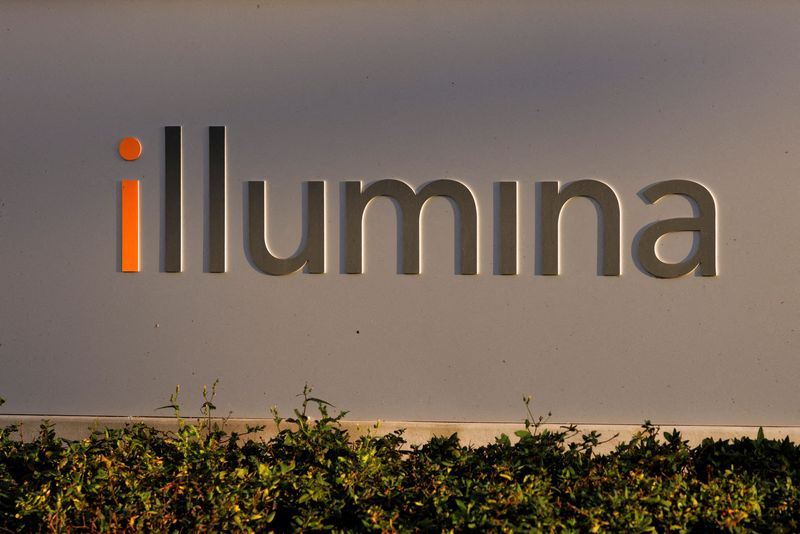By Foo Yun Chee
BRUSSELS (Reuters) -U.S. gene sequencing company Illumina (NASDAQ:ILMN) on Tuesday won its court fight against the European Union's investigation of its $7.1 billion purchase of cancer diagnostic test maker Grail, a ruling set to curb Brussels' merger powers.
Illumina, which founded Grail and spun it off in 2016 only to re-acquire it in 2021 for $7.1 billion, had fought against the European Commission's decision to wield a rarely-used power called Article 22 to assess the deal even though it was below the EU's merger revenue threshold.
The case has been closely watched by companies wary of EU scrutiny of minor deals and regulatory over-reach but which regulators fear could be so-called killer acquisitions in which big companies buy startups to shut them down, especially in the technology and pharmaceutical sectors.
However, the victory may have limited implications for Illumina, which spun off Grail again in June to comply with an EU order, keeping a minority stake of 14.5%.
The EU's General Court had in 2022 ruled in favour of the Commission after Illumina challenged the EU merger review that was triggered by requests from several EU countries.
The higher Court of Justice of the European Union (CJEU), however, sided with Illumina.
"The Court of Justice sets aside the judgment of the General Court and annuls the decisions by which the Commission accepted requests from national competition authorities seeking the examination of the proposed concentration," CJEU judges said.
"The Commission is not authorised to encourage or accept referrals of proposed concentrations without a European dimension from national competition authorities where those authorities are not competent to examine those proposed concentrations under their own national law," they said.
The Court said it was important that EU regulators stick to the revenue threshold for examining a merger because this was an important guarantee of foreseeability and legal certainty for companies.
The Commission, the EU's competition enforcer, blocked the deal in 2022 and ordered Illumina to divest Grail. It also fined Illumina 432 million euros ($478 million) for closing the deal in 2021 before securing its approval.
Illumina said the CJEU ruling meant it did not have to pay the fine. Its challenge against the EU veto of the deal also becomes moot.
"Today's judgment confirms Illumina's longstanding view that the European Commission exceeded its authority by asserting jurisdiction over this merger. The basis for the 432 million euro fine has now been removed and will no longer be payable," it said.
The ruling is final and cannot be appealed.
EU antitrust chief Margrethe Vestager said she would carefully study the judgment and its implications.
"More generally, we will consider the next steps to ensure that the Commission is able to review those few cases where a deal would have an impact in Europe but does not otherwise meet the EU notification thresholds," she said.

The cases are Cases C-611/22 P Illumina v Commission and C-625/22 P Grail v Commission.
($1 = 0.9039 euros)